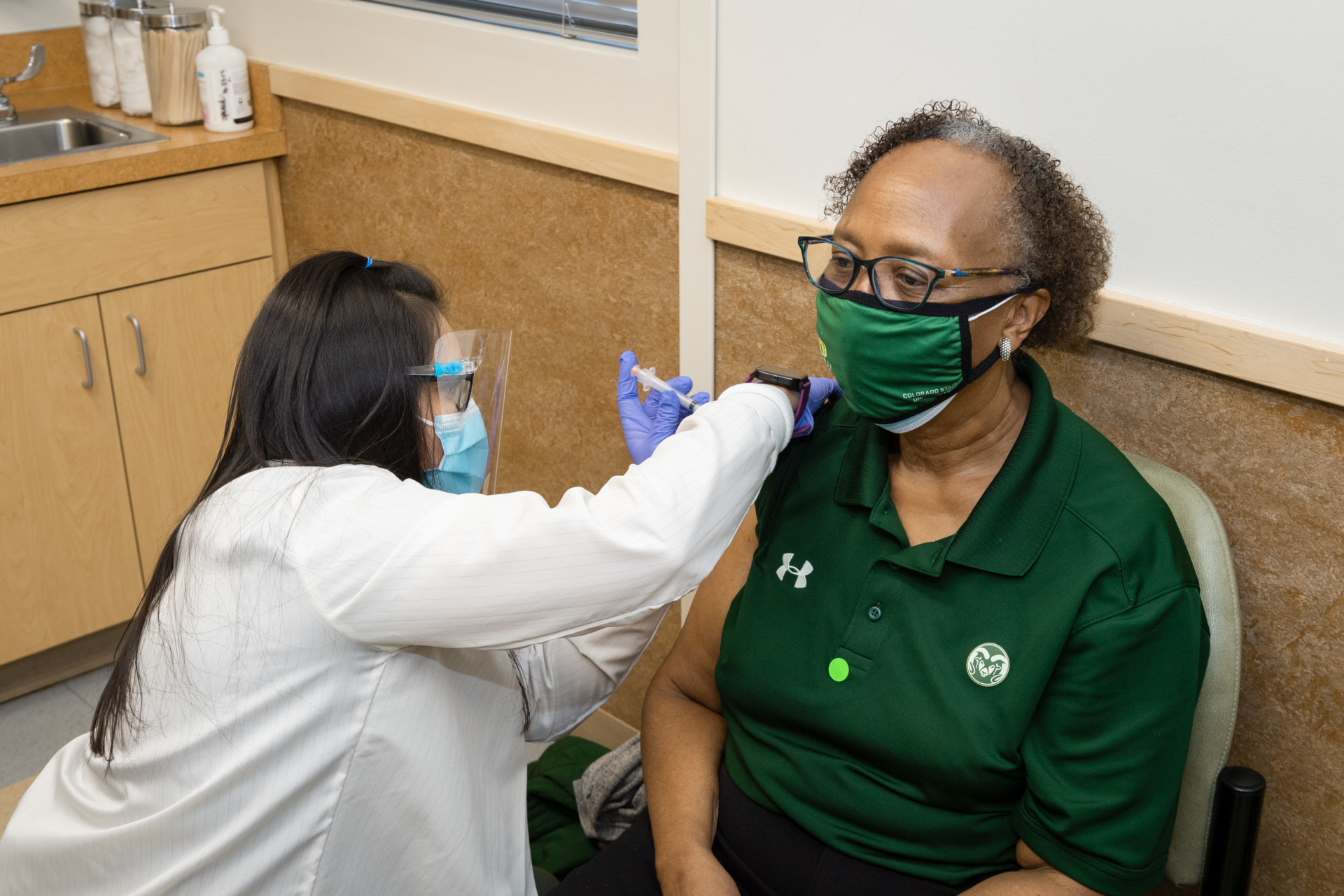
CSU Vice President for Student Affairs Blanche Hughes receives a COVID-19 vaccine at the Salud Family Health Center on March 2. Hughes, who meets the current age requirement for vaccination, was part of an effort organized by the Black, Indigenous and People of Color Alliance of Larimer County to raise awareness and support around COVID vaccinations. Photo by Joe Mendoza
When Colorado Gov. Jared Polis announced on Feb. 26 that student-facing faculty and staff at colleges and universities would be added to the phased rollout of the COVID-19 vaccines in March, many of the state’s higher education employees breathed a sigh of relief.
Colorado State University leaders and other state higher ed officials had been advocating for the move for weeks, and now the Pandemic Preparedness Team is working to compile a list of employees who will be eligible for the vaccine once that fifth phase of the rollout, Phase 1B.4, begins. It is currently set to start on March 21.
The CSU Health Network has been applying for a shipment of vaccines from the state every week since they became available, and received its first batch — only 200 doses of the Moderna vaccine — this week. Pandemic Team leaders expect the amounts being received will continue to be very limited, so eligible members of the CSU community should not expect the University to be their primary source for getting vaccinated.
Prioritization
Those who will be the top priority for receiving CSU vaccines include front-line health care workers, first responders and those working directly with the virus, such as employees at saliva screening sites and research labs.
“We know that many of our students, faculty and staff are eager to get vaccinated as soon as possible,” said Lori Lynn, executive director of the CSU Health Network and co-chair of the Pandemic Preparedness Team. “Know that we are working hard to develop a process that is fair, efficient and in line with state guidelines, with the goal of saving lives and protecting our community.”
The Pandemic Preparedness Team will connect employees who are on the list as meeting state criteria with vaccination sites at CSU or elsewhere, as vaccines become available. This process may take weeks, but everyone who wants a vaccine should expect to get an opportunity. Due to limited supply, employees should not contact the CSU Health Network unless they have received an invitation to their CSU email address inviting them to schedule an appointment.
Employees who meet eligibility requirements are encouraged to get a vaccine as soon as they can — whether from health care systems, pharmacies or community clinics — and not wait for CSU’s supply to grow.
CSU officials also say that because all three COVID-19 vaccines in circulation (made by Pfizer, Moderna and Janssen/Johnson & Johnson) have been highly effective at preventing hospitalization and death, employees should opt for the first one available to them.
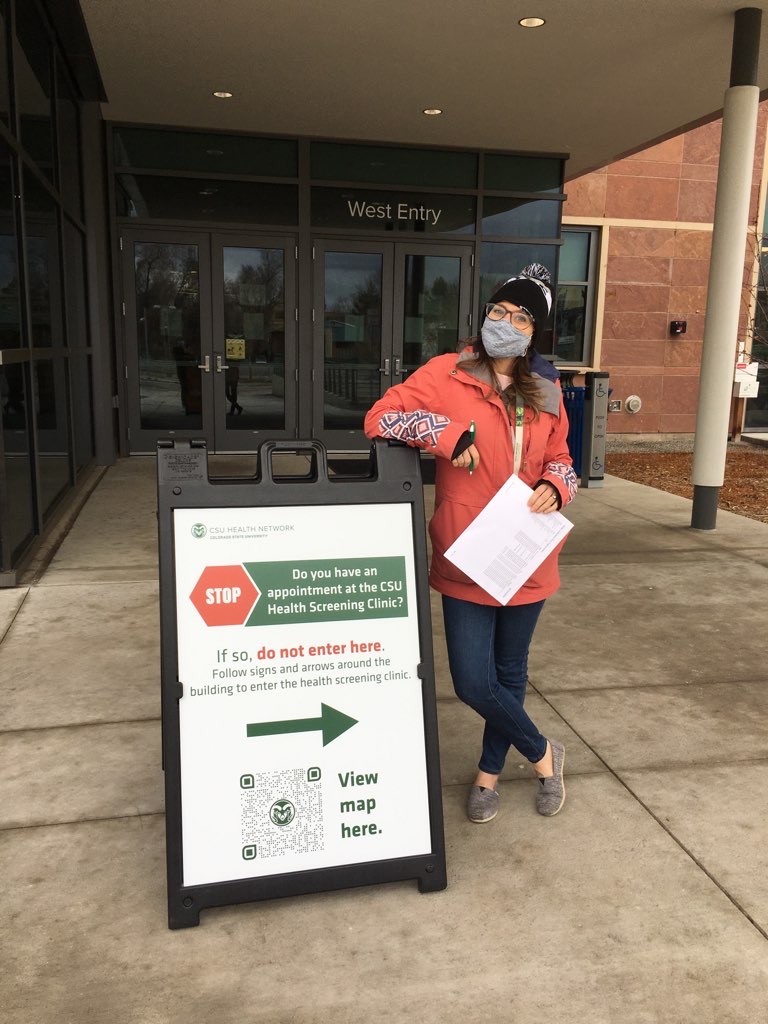
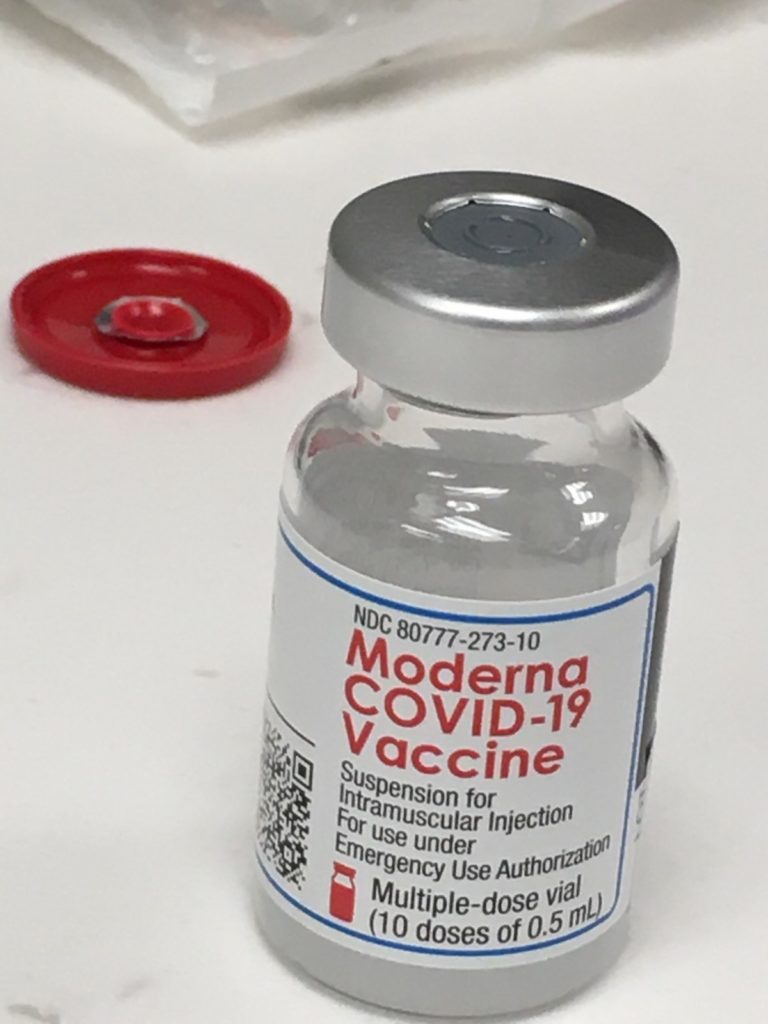
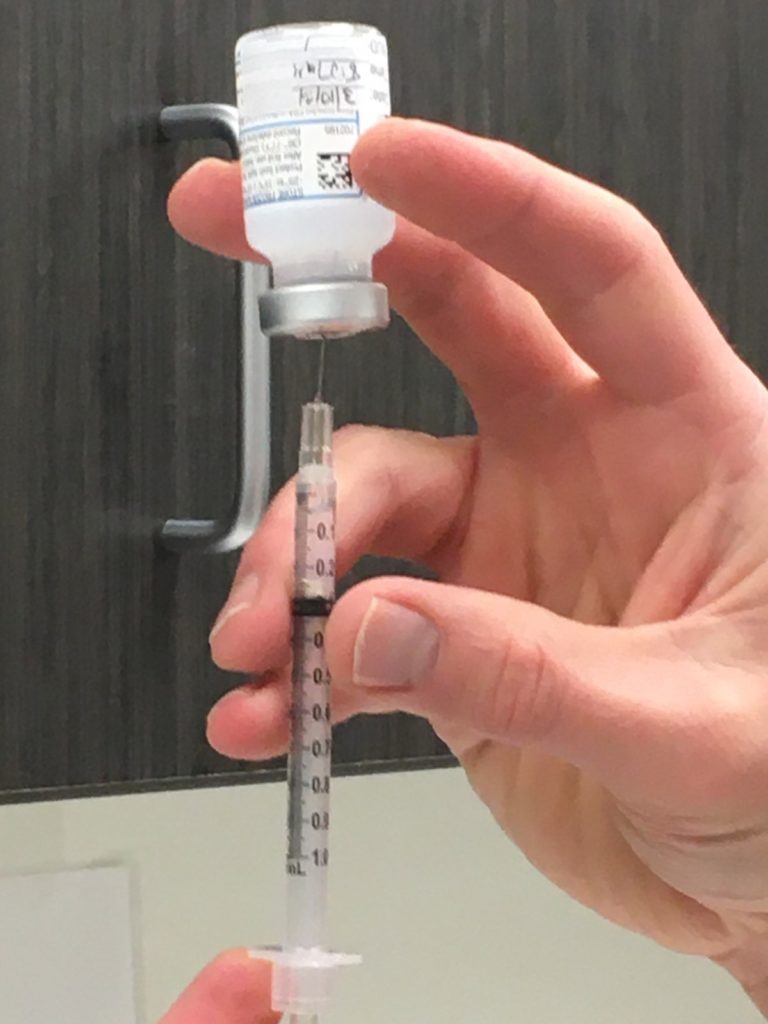
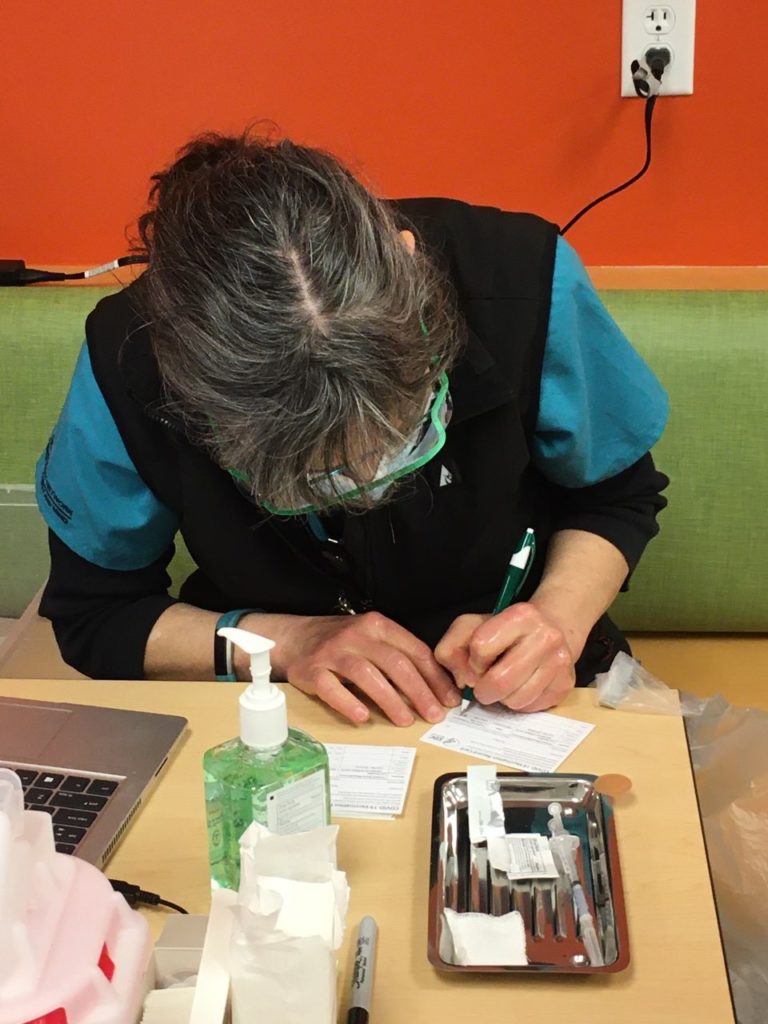
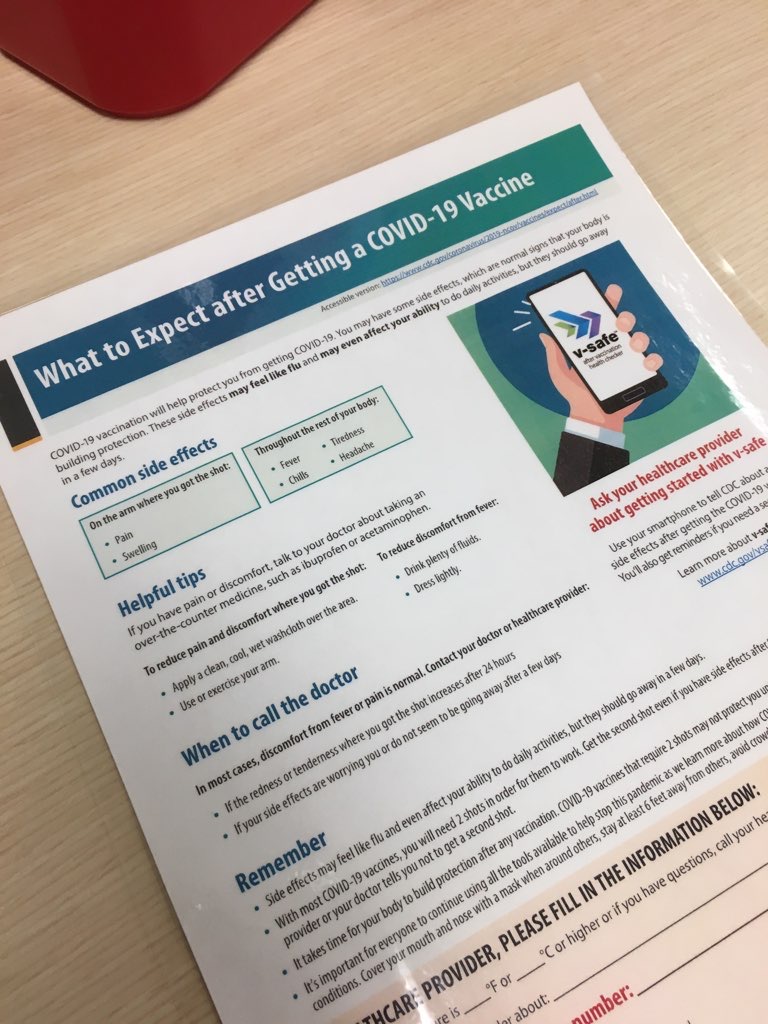
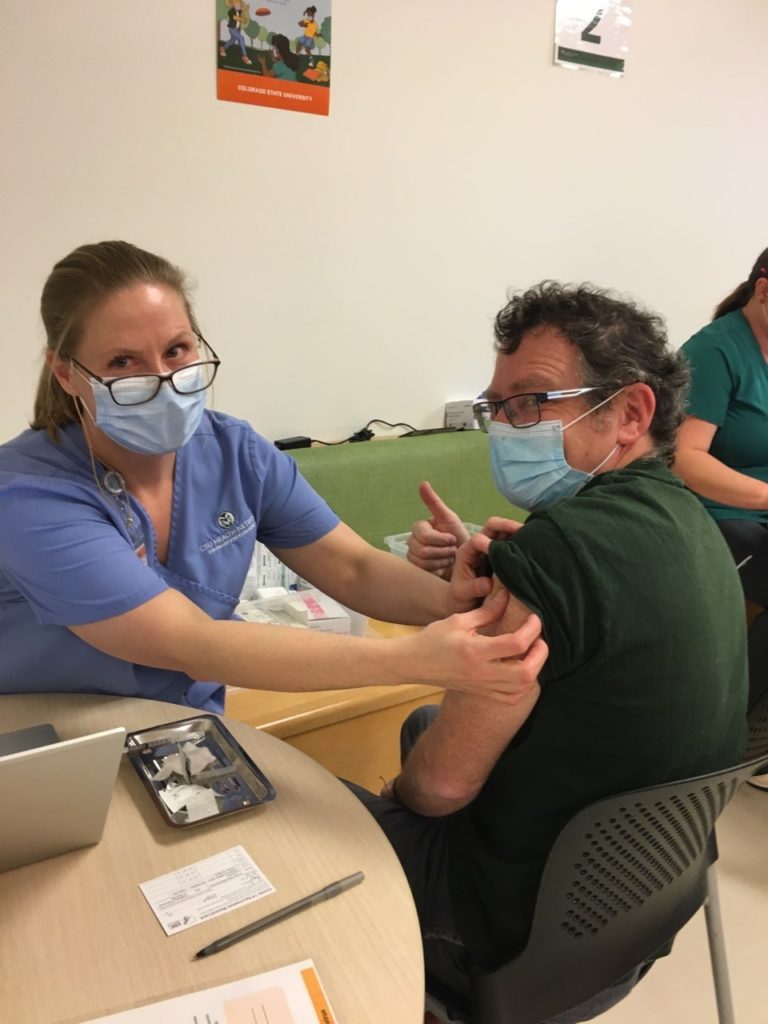
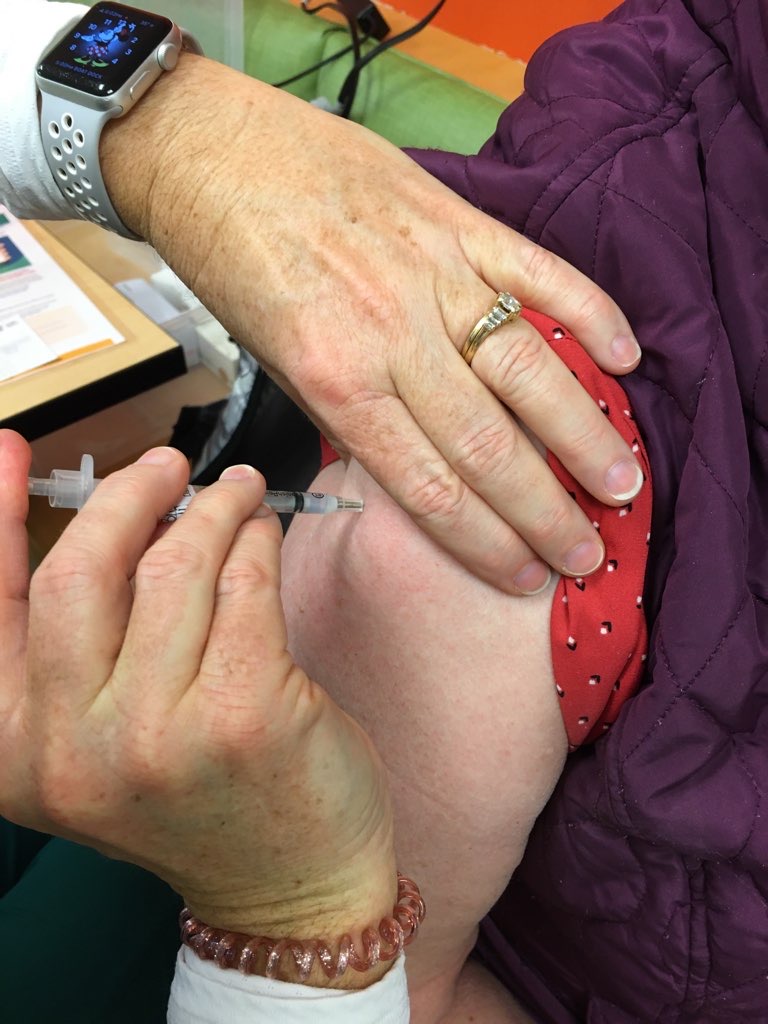
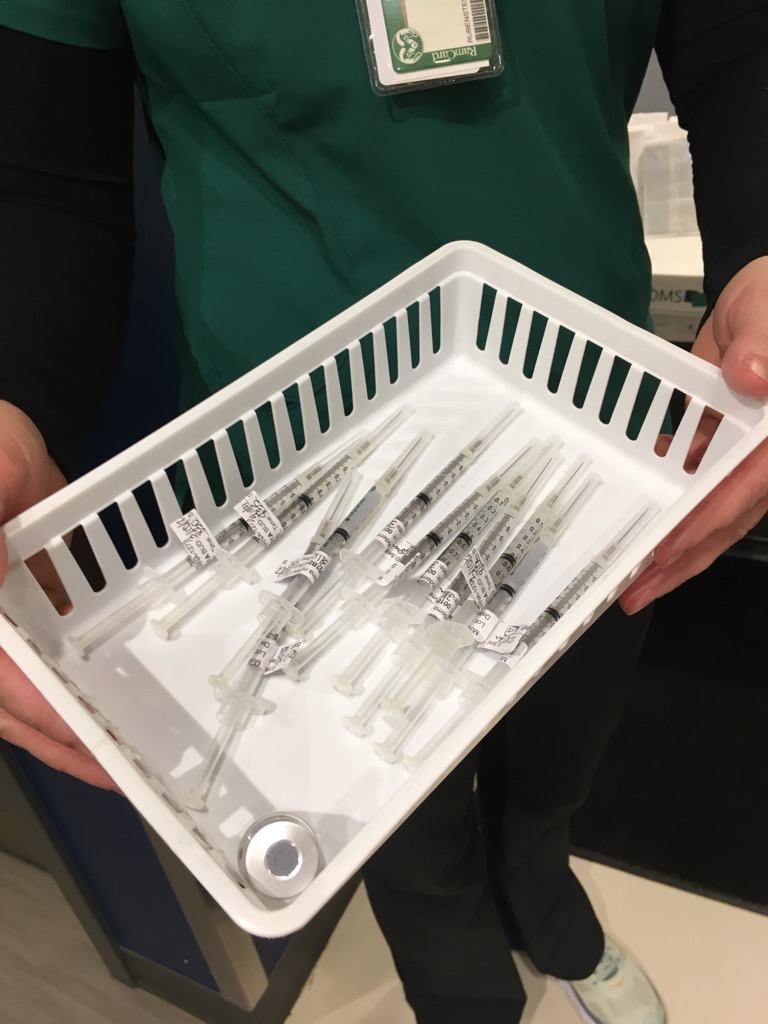
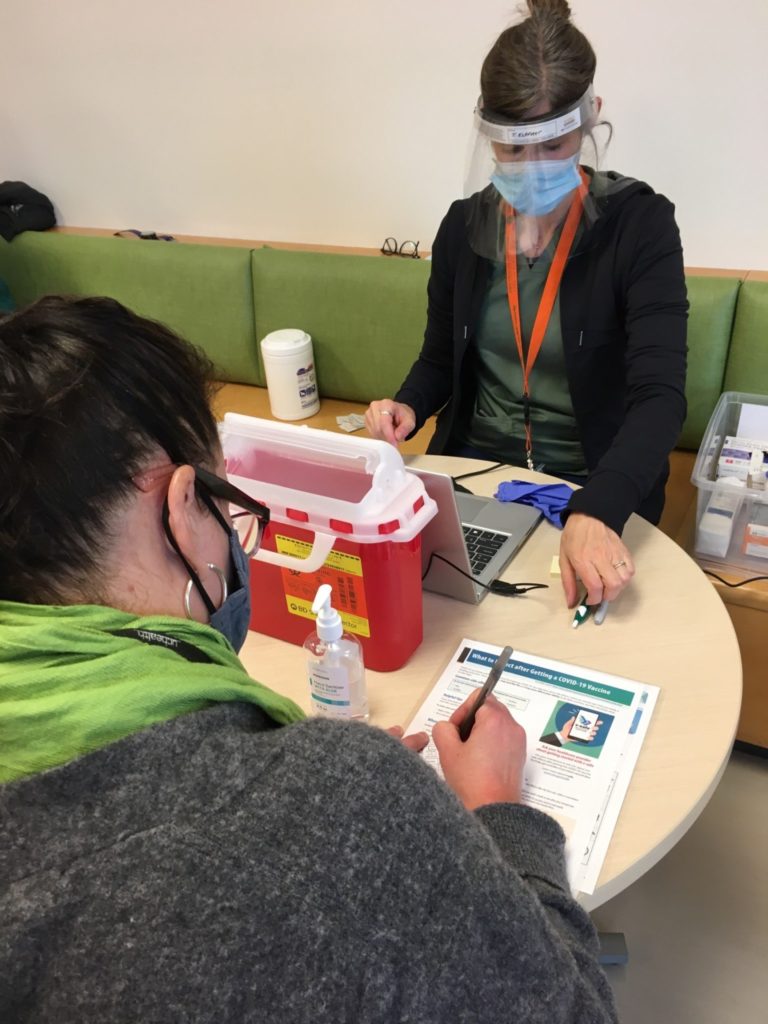
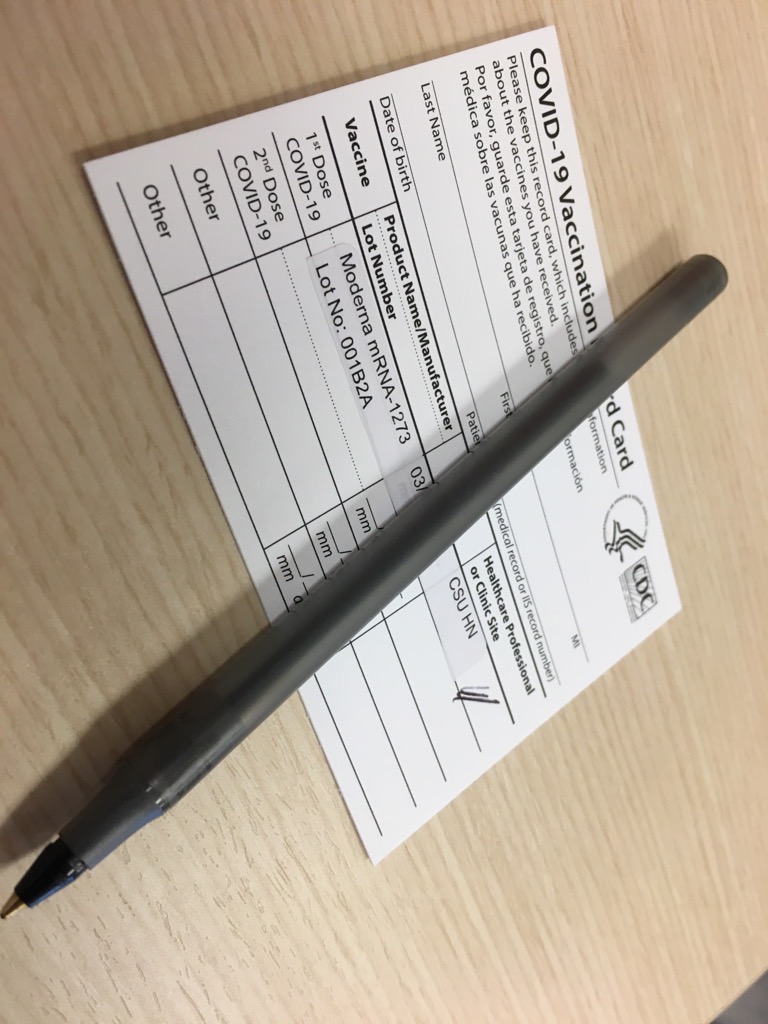

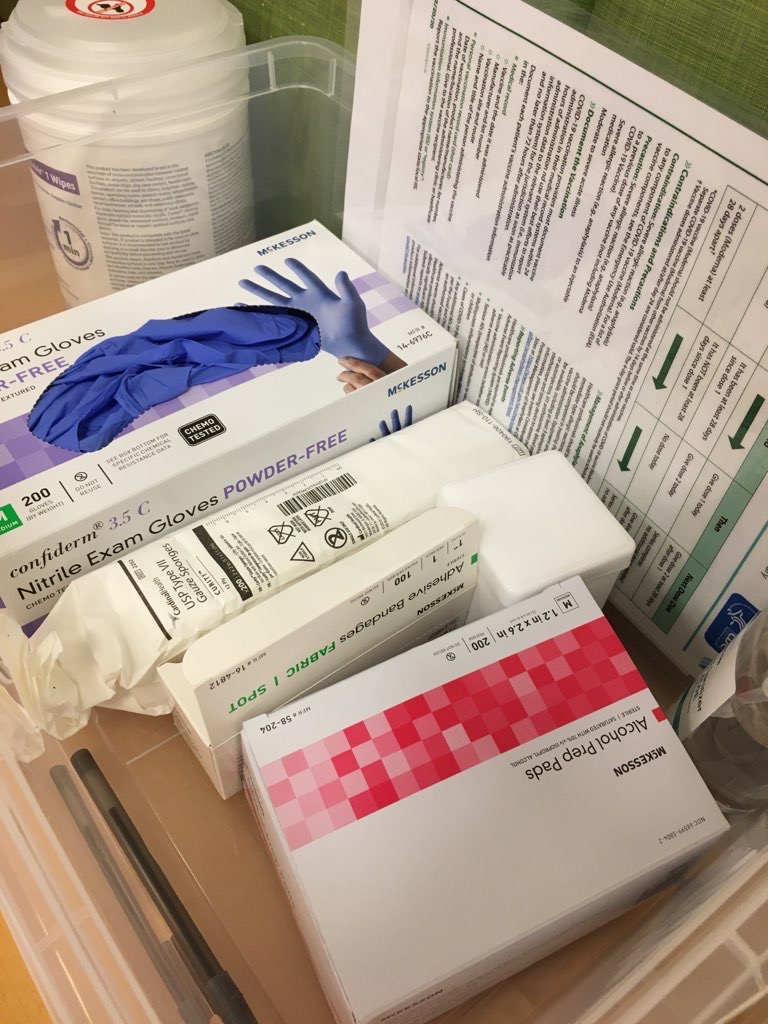
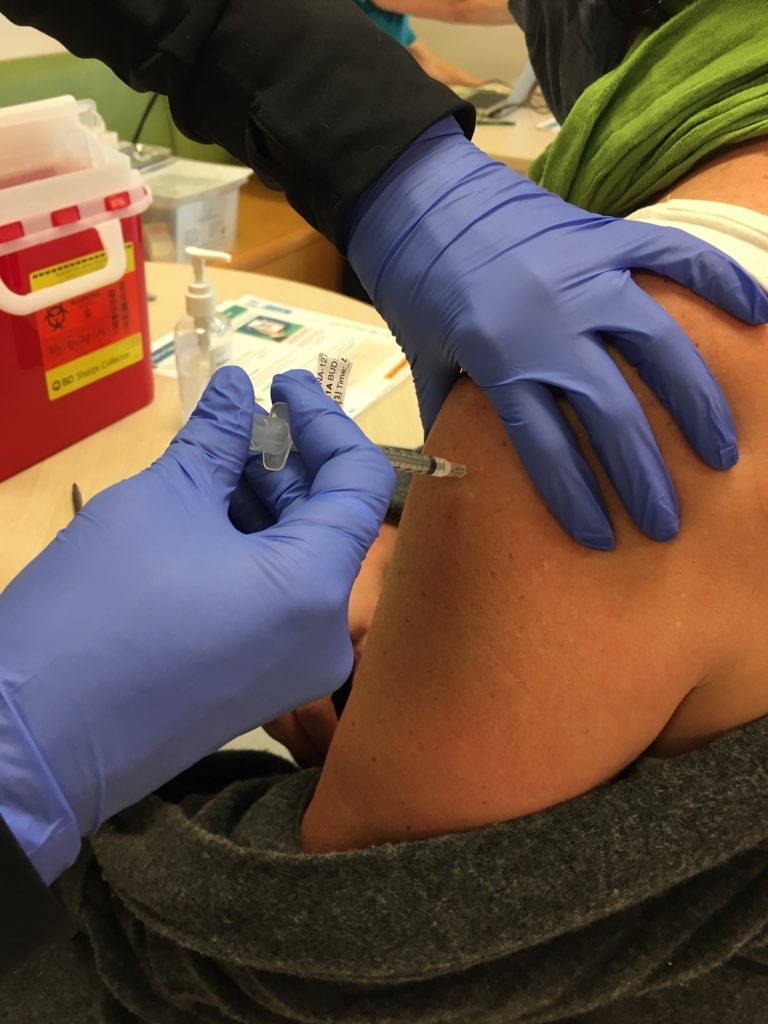
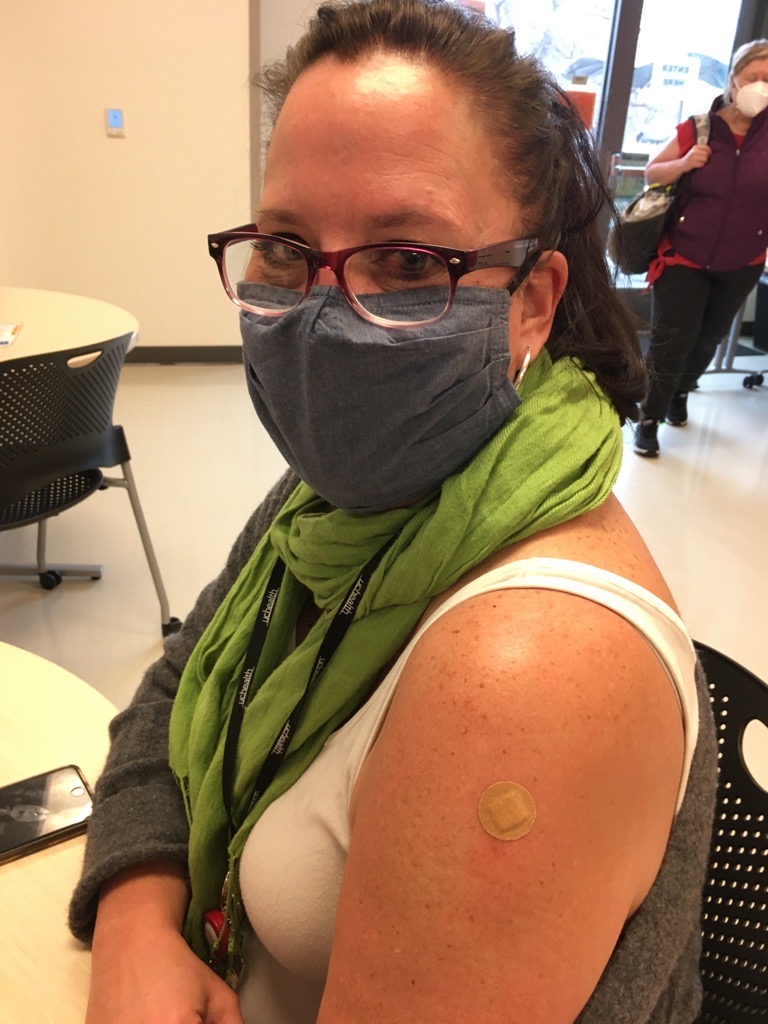
Scenes from the first COVID-19 vaccination clinic held at CSU March 10, when selected individuals started receiving the initial batch of Moderna vaccine that the University received March 8. Photos by Kathy Waller
Keep following public health protocols
Members of the Pandemic Preparedness Team say community members who have already been vaccinated should continue to receive weekly saliva screenings and follow health protocols such as wearing masks on campuses.
That team is coordinating with state and Larimer County officials to define what is meant by “student-facing faculty and staff,” and will work with university leaders to compile a master list of those eligible for the vaccines when phase 1B.4 begins. As vaccine supplies become available, subsets of that eligible group will be invited to schedule an appointment, but CSU officials warn that it will likely take weeks to complete the vaccination process for all of those community members.
Larimer County’s COVID-19 website has a page dedicated to vaccines, including a list of area providers who are offering or will offer the vaccine. Those include Banner Health, Centura Health, Health One Cares, Kaiser Permanente, Salud Family Health, SCL Health, Sunrise Community Health and UCHealth, as well as several pharmacies. In addition, the VaccineFinder website provides an easy way to search for vaccine availability by zip code.
No insurance, documentation of citizenship or payment is required to get a vaccine.
What you need to know about the vaccination process:
- Like other routine vaccinations, you will need to share some personal information with your provider when you get a COVID-19 vaccine. This information will be used for public health purposes only. It may include your name, date of birth and contact information. Sharing your identity and some of your medical history ensures that the vaccine is administered safely, effectively and responsibly.
- Getting a COVID-19 vaccine is free, even if you do not have medical insurance or citizenship documents. While some vaccination sites, including the CSU Health Network, will ask for your health insurance information, there will be no out-of-pocket cost to you.
For more information, visit CSU’s COVID-19 website.